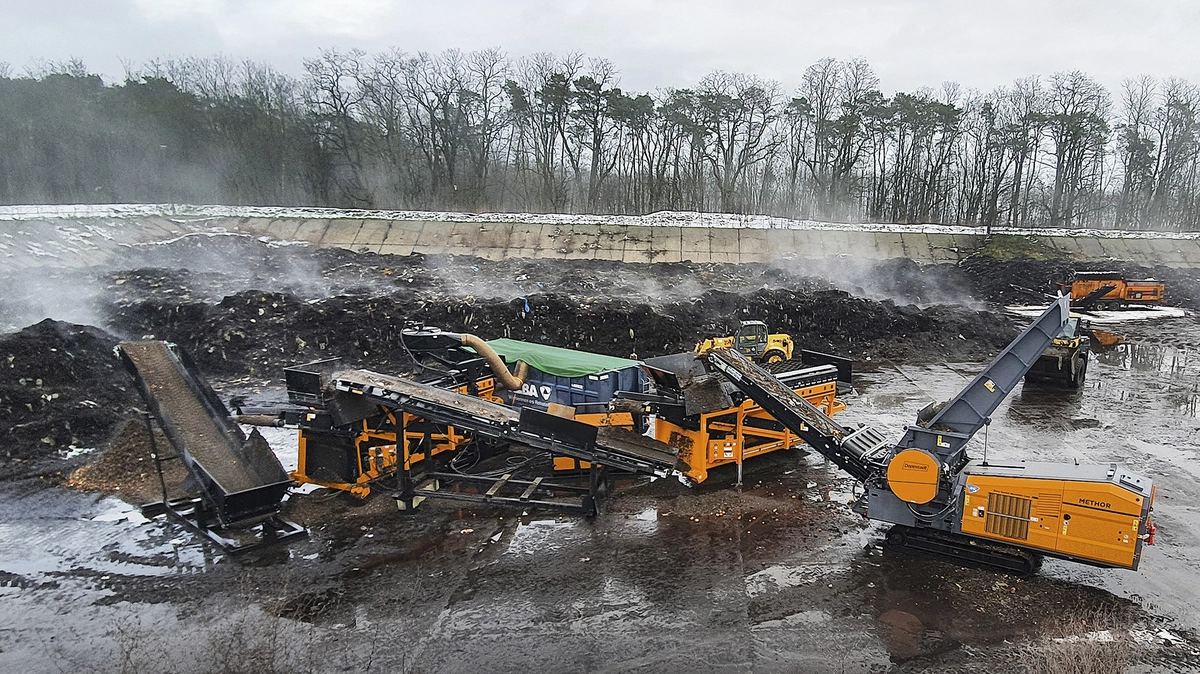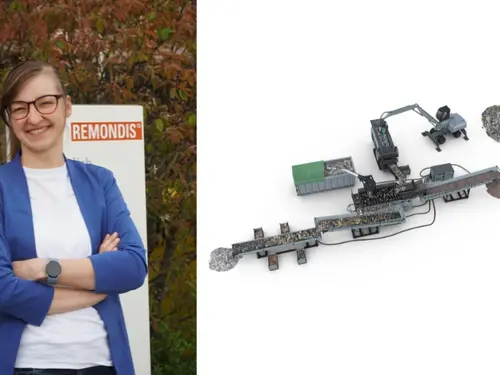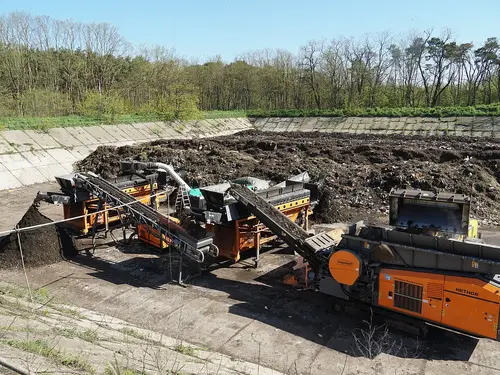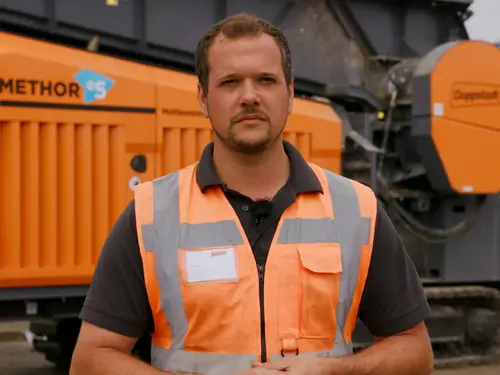Presented here, the successful implementation of the MMPC (Mobile Modular Processing Concept) according to the legal and market-specific framework conditions in Germany. Together with our expert local dealers, we individually adapt the MMPC to the country-specific framework conditions and your needs.
The latest amendments to the Biowaste Ordinance (BioAbfV) pose a major challenge for the processing of biowaste. To reduce the discharge of plastics, glass and metals into the environment, the requirements for the removal of foreign substances have been tightened considerably.
Using a mobile modular treatment concept that is individually tailored to your operation, you can efficiently pre-treat fresh biowaste in a legally compliant manner andeconomically post-treat sieve residues.
THE FUTURE IS MOBILE-MODULAR.
Our experts have smartly combined robust Doppstadt machines and proven add-ons to create a mobile modular system. All of the machines can be used flexibly in different fractions. You can react quickly to changing conditions by recombining the components of the system. It means you are ideally set up for the economical and legally compliant processing of your biowaste – no matter what challenges await you in the future.
BENEFIT FROM OUR IDEAS.
By mobile modular processing concepts, we mean combining mobile Doppstadt machines in a modular principle. Intelligently combined, they can be used in many applications.
AN INVESTMENT THAT PAYS OFF.
- Future-proof solutions with Doppstadt’s mobile modular processing concept MMAK
- Processing of up to 30,000 tonnes per year and per plant possible
- Low investment volume
- ROI possible within just three years with the appropriate processing quantities
- Reduction of disposal costs by up to 80 %
- Reduction of the sieve residue quantity from 15 % to less than 5 % is possible (related to the input quantity)
- Flexible use of the machines
- Rapid reaction to changed framework conditions
BENEFIT FROM OUR IDEAS.
By mobile modular processing concepts, we mean combining mobile Doppstadt machines in a modular principle. Intelligently combined, they can be used in many applications. As the system operator, you have a variety of options to adapt the system to precisely fit your material and volume flows. If these change at any stage, you can react quickly. All of the machines can be moved and reconfigured flexibly.
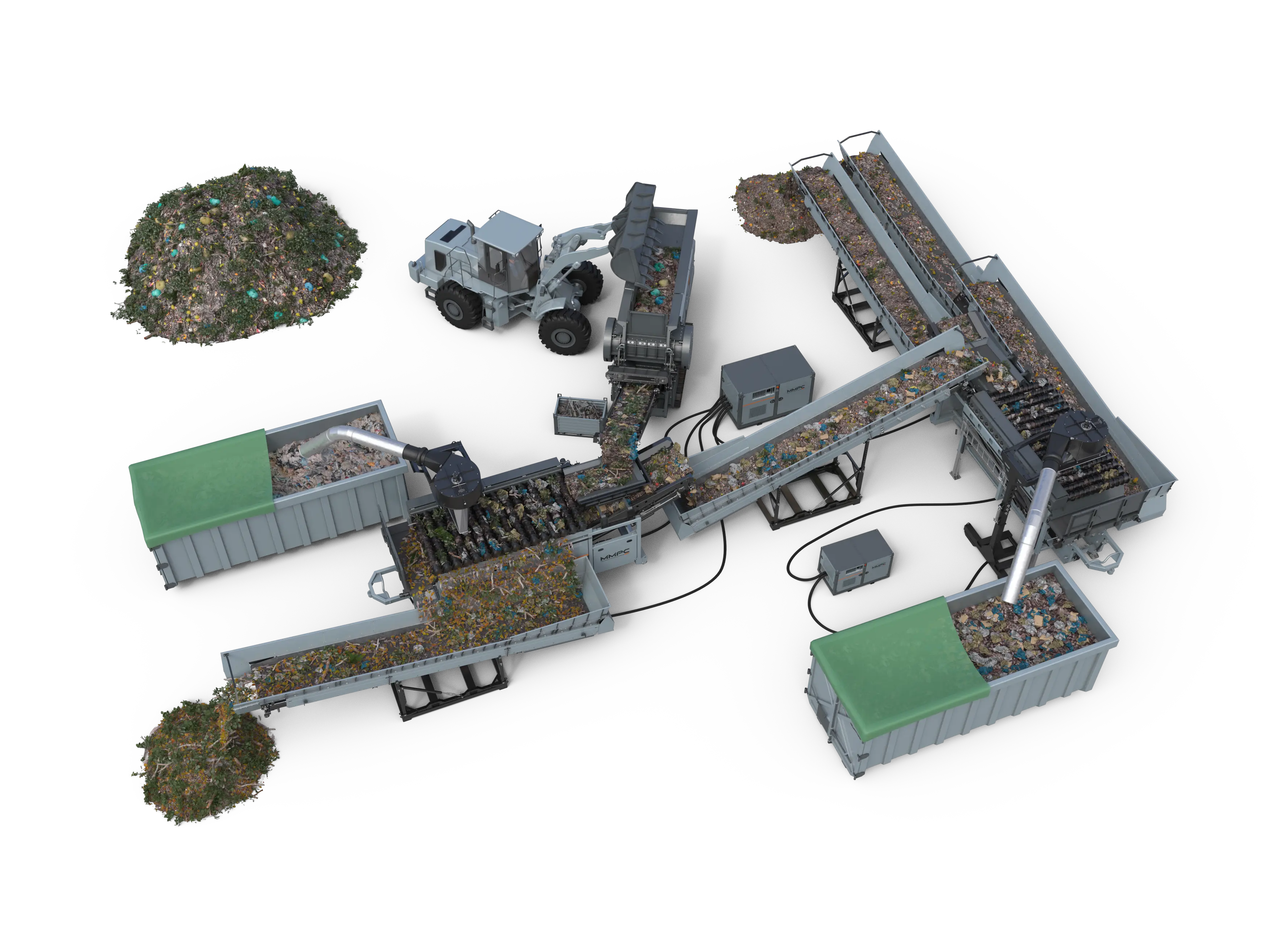
In three steps: efficiently remove impurities from your biowaste.
The METHOR opens bags, breaks up shrubby material composites, crushes stones, concrete and wood parts and separates Fe metals. It then conveys the material evenly onto the first SELECTOR 400 spiral shaft separator.
The SELECTOR 400 spiral shaft separator separates all impurities larger than 250 mm. They are discharged as overflow onto a mobile conveyor and stockpiled. A windsifter is installed above the spiral shaft deck, which extracts foils and other 2D impurities and conveys them into a settled roll-off container. The underflow is conveyed to the second SELECTOR 400.
The second SELECTOR 400 spiral shaft separator further separates the material stream so that the second windsifter can extract the remaining foils and 2D impurities. After that, the medium and fine fractions are almost free of impurities. You can now feed both fractions into the first biogenic treatment stage (composting or fermentation).
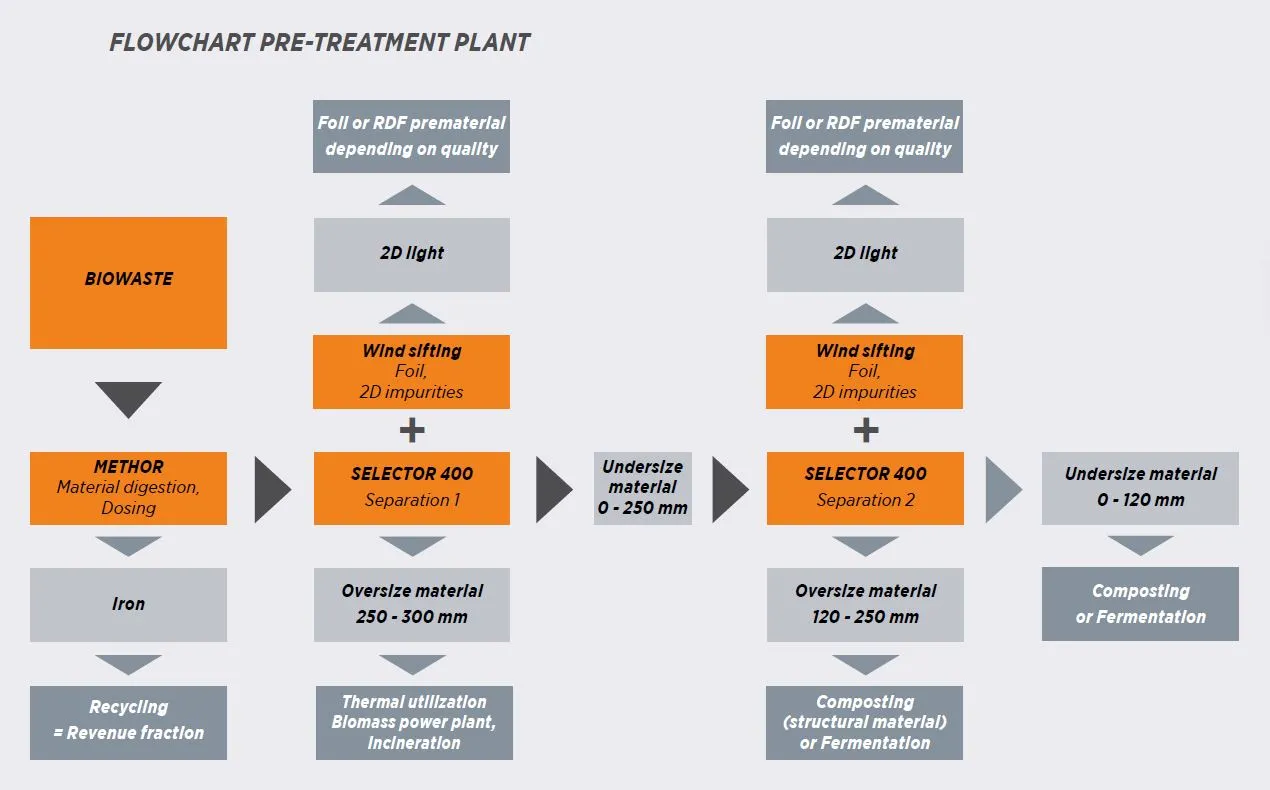

In five steps: The refinement of your sieve residues by reducing your disposal costs.
contaminant-free medium and fine fraction, from which you can sieve high-quality finished compost. The concept can be adapted flexibly if the influencing factors change.
The METHOR opens bags, separates composites and meters the material flow. It crushes stones, concrete and wood parts and separates Fe metal. It then conveys the material evenly onto the first SELECTOR 400 spiral shaft separator.
The SELECTOR 400 spiral shaft separator separates all impurities larger than 250 mm. Stones, hard plastics, hollow glass and coarse wood are discharged as overflow onto a mobile conveyor and stockpiled.
An infinitely adjustable wind sifter is mounted above the spiral shaft deck, which extracts foils and other 2D light fractions such as paper and conveys them into a settled roll-off container.
Separation of ferrous components with an overhead suspension magnet at the Methor.
Fine screening using a trommel screening machine to separate wood and stone components in the oversize material and finished compost in the fine material.
The wood in the oversize material that has been cleaned of impurities can be recycled in the BMKW.


